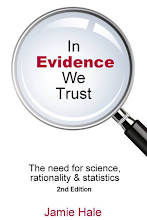Why does the psychology of science need to be classified as its own discipline?
Because psychology can shed light on the
personalities, developmental histories, cognitive processes of
scientific interest, talent, and creativity that other disciplines do
not. History of science touches these topics sometimes, but in case
studies in a historical context. Psychology is the only discipline that
studies these topics empirically.
How is the psychology of science different from the philosophy of science and the sociology of science?
Psychology is the only study of science
that combines an empirical perspective with a focus on the individual.
It also is the only study of science that uses the experimental methods.
Also psychology uniquely focuses on psychological factors such as
personality, motivation, brain activity, and development of thought.
Philosophy is mostly analytical, that is non-empirical and does not test
its own hypotheses the way psychology of science does. Sociology
ignores or even refutes the individual in a social context and focuses
on sociological structures and forces. The individual doesn't really
matter.
Does the psychology of science address
the psychology of rationality? That is, rationality as defined by
cognitive science (instrumental and epistemic rationality).
Psychology, or more specifically cognitive
psychology, very much is concerned with rational and non-rational
cognitive processes, often by comparing experts to novices and seeing
what distinguishes the two groups in how they identify and solve
scientific problems. Cognitive scientists like Paul Thagard, Herb Simon,
and Kevin Dunbar have examined rationality; but to the extent that
psychology weighs in against pseudoscience, anti-science, and social
constructivism, it takes a stance on rationality and the scientific
method being of value. A very good cognitive science perspective on
science the edited volume by Carruthers, Stich, and Siegal (2002)
entitled the cognitive basis of science.
What books do you recommend to a lay audience if they are interested in learning more about the psychology of science?
There no trade books for a wide general
audience, so my 2006 book (the psychology of science and the origins of
the scientific mind) would be one possible lay audience book (no stats
in it).
What books do you recommend to the scientist that is interested in learning more about the psychology of science?
There are many books on the topic that might be of interests to scientists;
--the handbook of the psychology of science, edited by Feist and Gorman (2013) (springer publishing)
--creativity in science, by Simonton (2004)
What is your favorite book?
I assume you mean in the psychology of
science. The books that for me have a special place were the two that
inspired me to become a psychologist of science during graduate school,
namely the edited volume by Gholson, Shadish, Neimeyer and Houts (1989)
psychology of science: contributions to metascience and Dean Simonton's
(1988) scientific genius: a psychology of science.
Where do you see the discipline- the psychology of science- in five years?
I
would love to say that it would have PhD programs and research centers,
but I think that is overly optimistic. More realistically, I think our
society--the international society for the psychology of science and
technology--will continue to have it's biennial conferences and have a
small but loyal core group of scholars working and identifying
themselves as psychologists of science.




